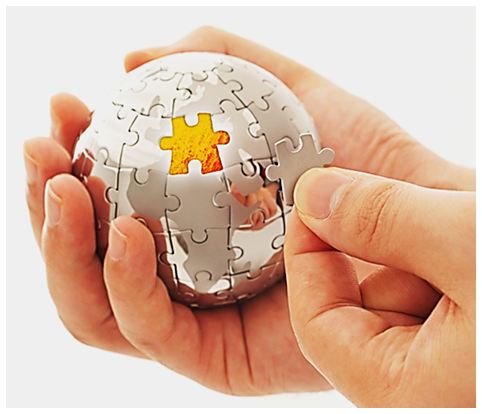What happens when government goes ‘Third Platform’?
We’re told endlessly how ‘running everything from the cloud’ shreds costs for startups, so does this mean that even government could be run cheaply, if they do this too?
When (media) worlds collide
This video reveals something shocking about Old Media: they are doing more new media stuff than any New Media operation: Why? They have much greater resources and they’re scared
Reverse gamification
Puzzles are (deliberately) bad user interfaces. We’re told to love the look of things which have ‘invisible’ interfaces, because designers love simplicity. Hide those countless features, make it look simple. But this turns things into games with hidden rules. Not everyone wants to play.
Shattering our Customer Relationship Management delusions
Ever wondered what would happen if anyone actually bothered to check out those incessant claims everyone makes that ‘customer service standards are constantly improving’?
Will continuous brain scanning implants make jury trials unnecessary?
Neuroscience offers the prospect of an incontrovertible record of the intentions behind everything we do, so jury trials may eventually be deemed unnecessary. But no chip implanted? Guilty as charged!
Myths and truths of customer loyalty in online communities
Free workforce? Marketing substitute? Unpaid website content generators? If you’re hoping for a way to ‘exploit the well-proven willingness of loyal customers to contribute tirelessly to your online promotion, generating enormous traffic and business, and asking for nothing in return’ you need help
Giants like PepsiCo, Time Warner and Pfizer talk candidly about how Social Media impacts them
When things go wrong, you could sometimes be forgiven for imagining that big institutions are indifferent to the effects of social media. This video should clear that up, at least for these household names, which seem fully engaged
The iij top 10 upcoming customer service innovation books
Where is customer service innovation really happening right now? Is it mostly in sales, brands, marketing, call centers, e-commerce, retailing, CRM, products, social media, mobile, games, finance? These titles show that it’s taking place over the entire spectrum
The philosophical assumptions of social media
Platforms such as FaceBook have come under criticism for not offering ways to differentiate ‘types of friends’, and as such, not being ‘truly social’. Whilst this may be true, philosophers, sociologists and cultural anthropologists would argue that fixing this may introduce just as many problems as it solves
Extreme uncertainty over startups as a solution to everything
Startups attempt innovation under conditions of extreme uncertainty. Is it possible that we can find new ways to solve the world’s biggest problems using ‘extreme uncertainty’?
Unemployment, social media addiction and startup proliferation
What are the differences in social media activity when comparing employed and unemployed people? Would you take on a job that was underpaid and unattractive, start or join a fun but non-paying, penniless startup, anything so as not to have fewer social experiences to share online?
The iij Top Twenty Upcoming Social Media Books
What is the range of subject matter in our ‘spring collection’ of (weighty and in some cases expensive) Social Media volumes? Integration, culture, storytelling, journalism, transmedia, immersion, law, enterprise, strategy, teaching, meaning, creativity, identity, invention and belonging
Marketers target our invisible connective tissue, offline and online
We’re leaving trails behind us, both offline and online, inside and outside social media, that we don’t notice, but marketers do, and they’re using them to spot our closest friends, betting that they’ll share our tastes and would probably buy what we bought if they were approached.
Say anything you want to, we trust your judgement
Encouraging your staff to be unfettered champions of your values carries the risk of them ‘going native’. They may side with outsiders who might want to hold you to those values when they seem to conflict with your immediate operational goals.
Awesome innovation, so why doesn’t anyone buy into it?
The psychology behind ‘communicating new ideas’ is something that whizzes straight over the heads of most innovators, whose ideas then whiz straight over the heads of almost everyone else
Customers as community: dangerous yet necessary
Necessary because it’s something which will happen anyway: dangerous because some of your business instincts will get you into trouble, communities are not a safe place for the inexperienced to innovate
Are some things just too personal to share?
Your most private functions may soon not be quite so private

















